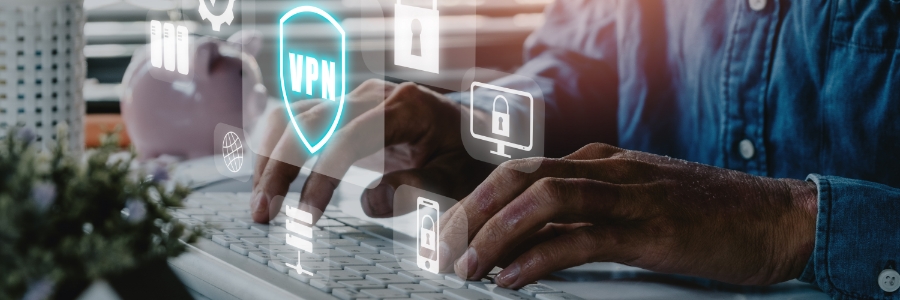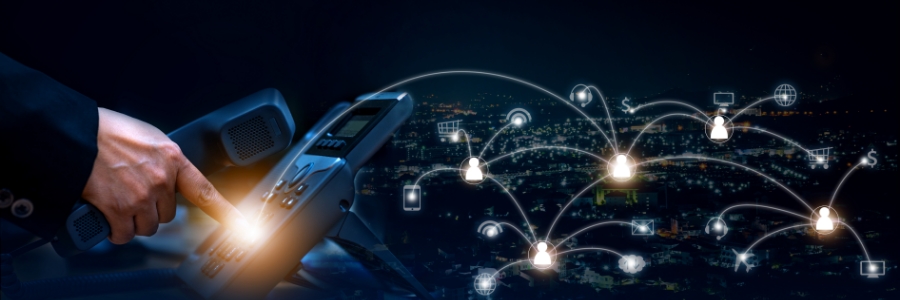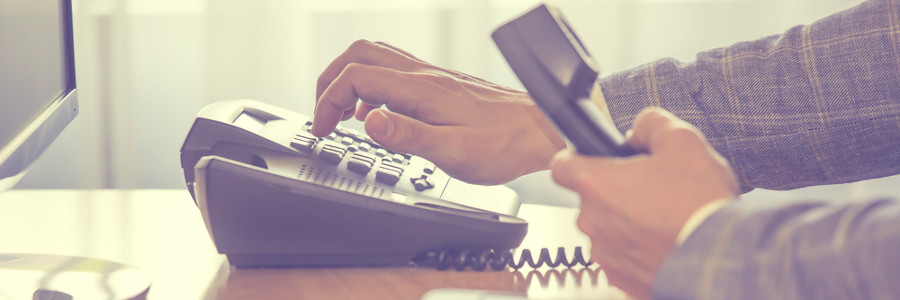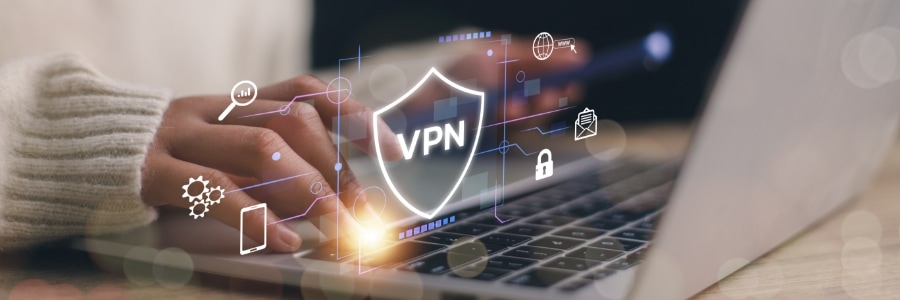Even with firewalls and anti-malware software in place, cybercriminals can still intercept your data if you don’t take extra precautions, such as using virtual private networks (VPN). Without a VPN, your business remains exposed to data theft and other serious security breaches.
A quick guide to VPNs: The benefits and the criteria for choosing a trustworthy VPN
Simple steps to protect your online presence
5 Security measures you need for VoIP
Holiday cybersecurity tips to protect against hackers
How to boost cybersecurity when working remotely

Remote work has become the norm, and it brings a host of benefits to both employees and employers. However, working outside of a traditional office environment introduces unique security challenges. Fortunately, there are steps you can take to improve your and your employees’ cybersecurity while working remotely.
What to consider when choosing a VPN solution
How to choose the right VPN for your business

If you want to stay secure while using the internet, it’s not enough to simply rely on anti-malware software and a firewall. Nowadays, hackers can read data sent to and from your device and steal the information inside them. This is why your business needs a virtual private network (VPN).
What is a VPN?
A VPN creates an encrypted tunnel between your device and the internet, keeping you safe from hackers looking to intercept your data and any third parties that want to monitor your online activities.
Protect your VoIP system with these security measures

If your business uses Voice over Internet Protocol (VoIP), it's important to make sure that your data is safe and secure. Luckily, there are many security measures that you can put in place to protect your VoIP system from criminal activity. To protect your VoIP phones, follow these tried-and-tested security measures.
How to keep your VoIP systems safe

While investing in Voice over Internet Protocol (VoIP) systems is known to help businesses reduce their telecommunication costs, failing to secure these can nullify the financial advantages gained and even lead to some serious consequences. If VoIP systems are left vulnerable, hackers can eavesdrop on your conversations and steal sensitive information.
Defending against watering hole attacks

More and more cybercriminals are launching watering hole attacks to gain access to company networks. But what exactly is a watering hole attack, and how can you protect yourself from it? Read on to learn how.
How watering hole attacks work
The term “watering hole” colloquially refers to a social gathering place where a particular group of people often go to.





